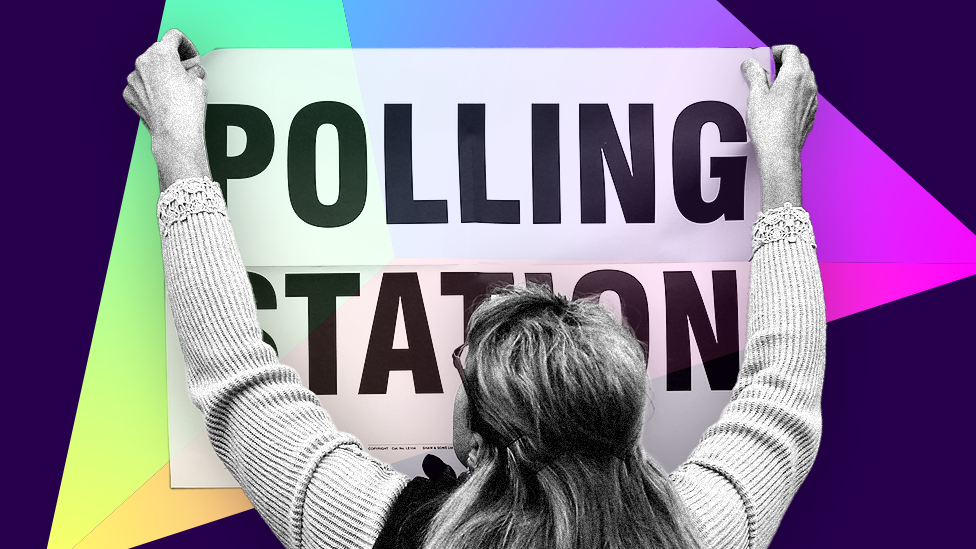'It's damaging if women feel unsafe campaigning'
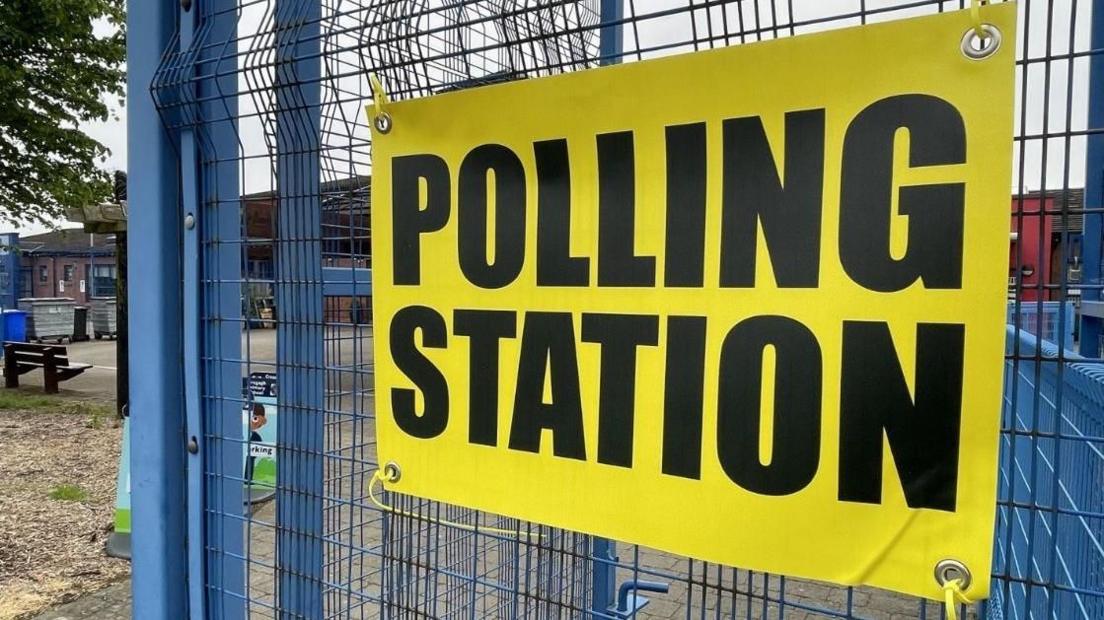
- Published
It would be "damaging to democracy" if women don't feel safe to campaign or take part in elections, the head of Northern Ireland's Electoral Commission has said.
Cahir Hughes said that "we'd be a poorer society if women did not feel safe" to run in the upcoming UK general election on 4 July.
A report from the commission , externallooking at the May 2023 local elections in Northern Ireland highlighted that half of the 807 candidates reported experiencing threats, abuse and or intimidation.
It also found women candidates in Northern Ireland were more likely than male candidates to have experienced harassment.
Social media abuse
The head of the commission said an increasing number of candidates are reporting experiences of harassment and abuse either while they're out on the streets campaigning or "particularly online through social media channels".
Other incidents reported related to intimidation, harassment or assault linked to campaigning.
Abuse posted on social media accounted for 26% of those reports.
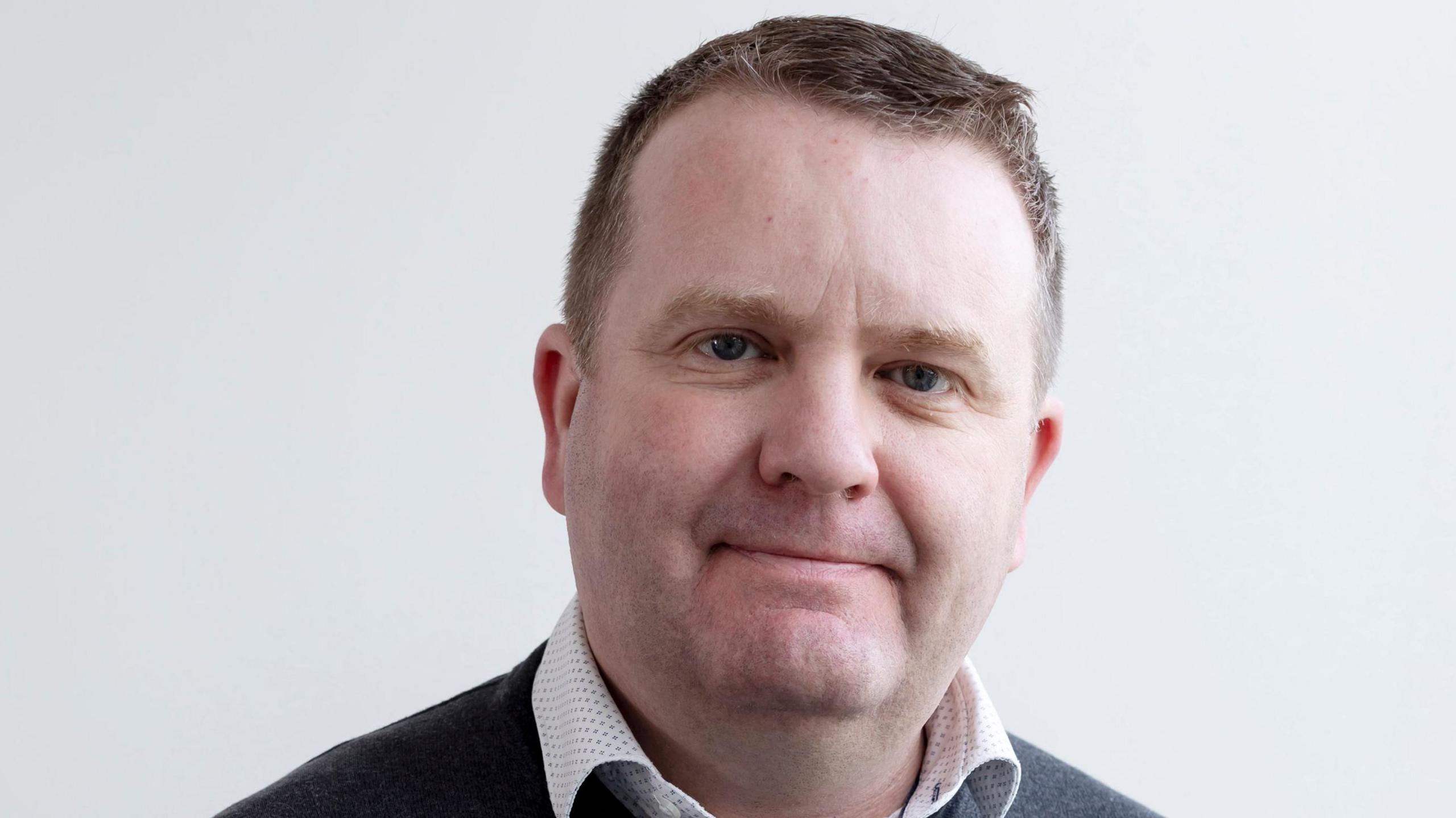
Cahir Hughes is head of the Electoral Commission in Northern Ireland
"Sadly female participation in politics generally is lower, we see a lower number of candidates and a lower number of female representatives," he told BBC News NI.
"I think we would be a poorer society if women did not feel safe to campaign or take part in elections, it would be damaging to democracy.
"It creates barriers for those who have an important message to share and campaign on, and I think it's very detrimental to our democracy and reduces voter choice."
According to the commission, during the elections last year, almost 200 incidents were reported to the police. The vast majority of these related to the theft, removal or damage of election posters.
Mr Hughes has called on all candidates and campaigners to report incidents to the police.
"As we approach the general election we are calling on the wider public and the electoral community to consider how their behaviours impact on campaigning and what the long term consequences of this could be," he said.
Politician left physically sick by abusive images
- Published10 May 2022
UUP candidate challenges racist online abuse
- Published14 May 2024
Stormont election candidate 'gripped by throat'
- Published30 April 2022
'I got my first death threat before I was elected'
- Published17 March 2024
What are the consequences for abuse?
The electoral commission has said over the last 12 months it has been working closely with the Police Service of Northern Ireland and has issued joint guidance on how to campaign safely.
"Some of the abuse directly as candidates is illegal, it's intimidation, it's harassment and can have serious consequences, be that on the street or be that on social media," Mr Hughes added.
"It is worth considering that shouting abuse at a candidate or putting a tweet on a social media that is abusive may just seem harmless fun and a normal part of campaigning, but it can have serious consequences for those who choose to do so."
Nominations for the general election close on Friday.

Related topics
- Published24 May 2024
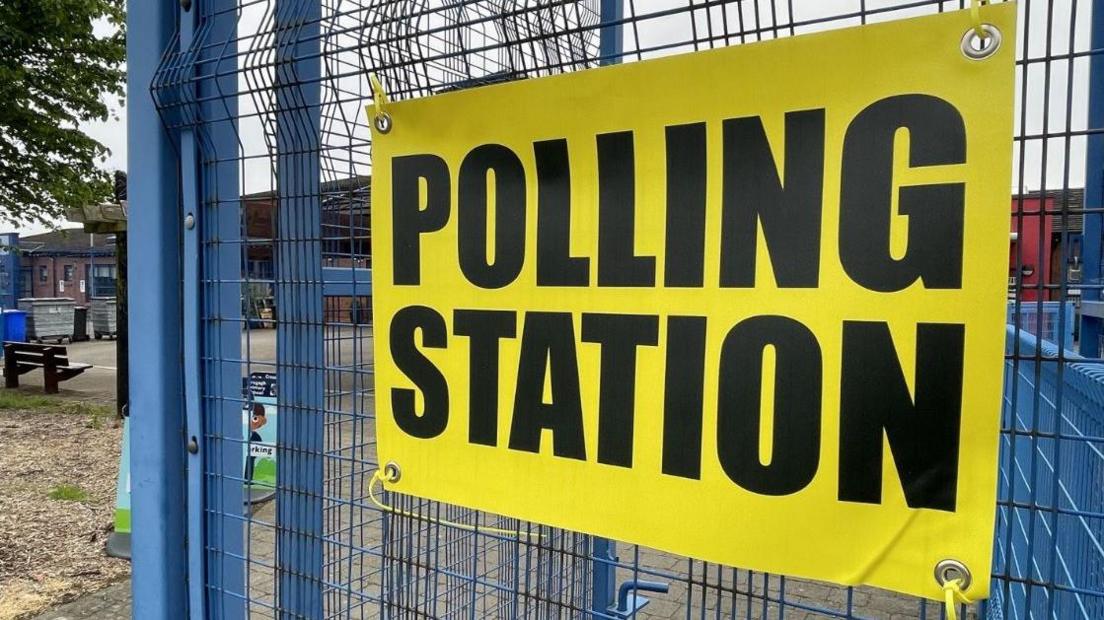
- Published14 June 2024
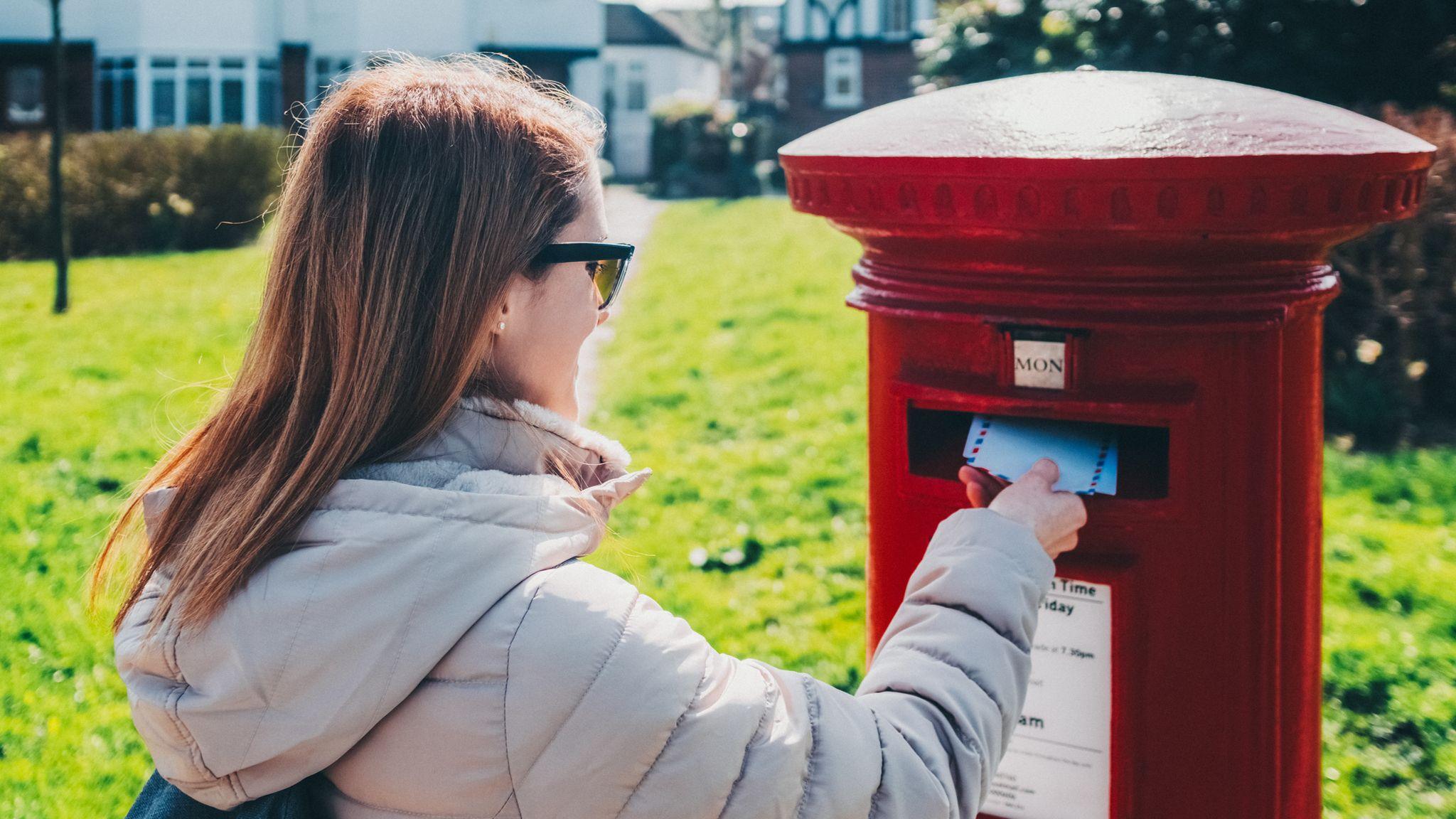
- Published23 May 2024
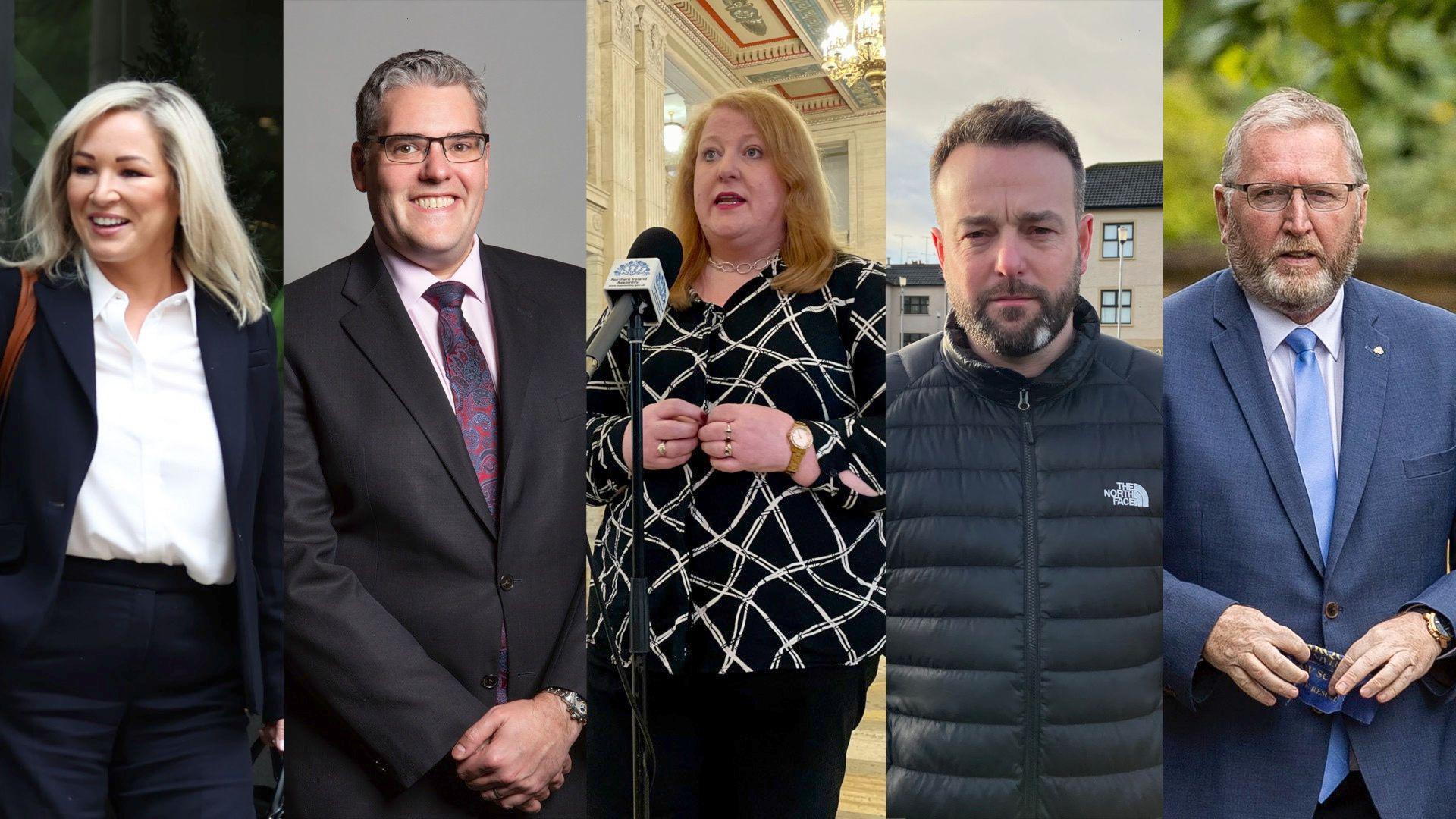
- Published4 July 2024
